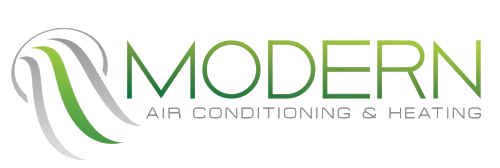Tips for Maximizing HVAC Energy Efficiency
The air the HVAC system draws in consists of all kinds of pollutants, including dust, pollen, pet fur, and dirt.
During the hot summer or cold winter days, homeowners must keep HVAC systems operating to make indoor spaces comfortable. However, these systems consume significant energy, which is not pocket-friendly.
Here are some tips to maximize HVAC energy efficiency and cut large power bills:
Shift to programmable thermostats
Manual thermostats don’t spare energy because the temperature remains fixed until a homeowner adjusts it. So, when a homeowner forgets to change the temperature, the thermostat keeps warming or cooling the space.
The remedy is buying a programmable thermostat. Homeowners can set it to automatically change temperature at a specific time, which lifts some workload off the HVAC system. It is also possible to control the thermostat remotely, enabling homeowners to operate the HVAC system efficiently.
Change the HVAC system’s air filters regularly
The air the HVAC system draws in consists of all kinds of pollutants, including dust, pollen, pet fur, and dirt. Air filters trap this debris in the system to prevent circulating impure air.
Over time, the air filters can get clogged by dirt, causing the HVAC system to work extra hard to circulate the air. This decreased efficiency results in the system using more energy than expected. Homeowners can prevent this by changing the air filters at least once every three months.
Seal air leakages
Tiny spaces around the doors, windows, and ducts appear harmless but don’t do the HVAC system any favors. During cold days, these spaces allow warm air from inside to escape and let cold air in. Conversely, on hot days, they release cool air from the house and allow warm air to enter from outside.
The constant air exchange makes the HVAC system overwork to maintain the desired temperature. By sealing all leakages, homeowners can maintain uniform air temperature inside the house and reduce energy consumption.
Upgrade the cooling and heating components
For most homeowners, replacing an HVAC system with an energy-efficient model is always costly. However, large utility bills are unavoidable if the current system’s cooling and heating components are worn out.
To address this problem, homeowners can retrofit or upgrade the inefficient HVAC system components. One can retrofit some components, including cooling units, boilers, furnaces, and air handlers.
Also, retrofitting can incorporate renewable energy sources such as solar panels or geothermal cooling and heating systems into the HVAC system. This helps to save energy by eliminating reliance on electricity.
Cut energy bill expenses
Every homeowner with an HVAC system wants to reduce energy usage. But besides buying energy-efficient systems, they can also use energy-saving tips whenever possible. For that reason, homeowners should consult a professional if their HVAC system energy consumption keeps increasing monthly. They can give the best advice moving forward.
Modern Air Conditioning & Heating is a Boulder City-based HVAC company offering 15 years of experience in residential and commercial HVAC services for all makes and models. You can also call us directly at (702) 919-4365.

